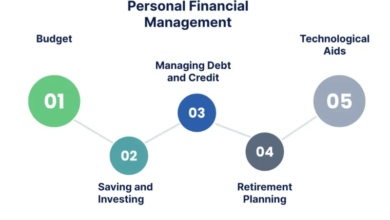
Now in fact managing your short-term savings is important to achieve short-term goals and create an economic base in the market today. No matter what your plan is – starting an emergency fund, paying off debt, saving for a big purchase – the difference between your financial well-being can depend on understanding the strengths and weaknesses of different saving structures and strategies.
What are Short-Term Financial Goals?
Short-term financial goals are targets you plan to reach in the next one to three years. These small goals are typically stepping stones to larger financial goals. Common examples include:
- Building Emergency Fund: Saving towards a particular goal to cover for unplanned expenses such as medical emergencies or urgent repairs at home.
- Focus On Paying Off High-Interest Debt: So that they often focus on ridding themselves of high-interest debts like credit card balances to reduce financial stress and improve credit scores.
- Saving for a Big Purchase: Putting away money for large purchases such as a vehicle, a home appliance, or a trip of a lifetime.
How to Implement Short-Term Savings Goals?
Here are some ways to help you achieve your short-term savings goals.
Set Clear and Specific Goals
Make it clear what you intend to accomplish. Rather than dictate an incomplete goal “save money” identify a clear, measurable goal “save $5,000 for a car down payment in 12 months.”
Evaluate Your Existing Financial Position
Assess your income, your expenses, and any existing savings. This will give you an exact picture of what you can actually afford to save towards your funds every month.
Develop a Detailed Budget
Develop a budget letter that summarizes your monthly income and expenses. This should help you find more effective places to reduce your spending and channel more of it toward your savings goals.
Automate Your Savings
Direct automatic transfers to a dedicated savings account. Automation of your savings ensures you are consistent with setting aside capital, and also helps to limit the temptation to spend discretionary income.
Choose the Right Vehicle For Your Savings
Selecting the right savings account can also help ensure you’re getting the most out of your savings. Here are two options for further comparison:
| Feature | High-Yield Savings Accounts | Money-Market Accounts |
|---|---|---|
| Interest Rates | Higher than standard savings | Competitive, similar to HYSA |
| Minimum Balance | Often low or none | May be higher |
| Liquidity | High | High |
| Check/Debit Access | Limited | Often available |
| Fees | Potential fees; check terms | Potential fees; check terms |
| FDIC Insurance | Yes | Yes |
Money-Market Funds Current Interest Rates
Money-market funds yield about 4.14% as of April 9, 2025. Some funds, like the Vanguard Treasury Money Market Fund, pay as much as 4.23%. Barron’s+1Barron’s+1
Other Tips to Help You Save Faster
Here are a few ways to help you reach your short-term savings goals more quickly:
- Cut Unnecessary Spending: Find areas where you can reduce spending on non-essential items and services.
- Need More Money: Look for extra work—freelance jobs or part-time employment.
- Use Windfalls: Put windfalls money you did not work for, such as tax refunds or bonuses right in your savings.
Track and Tweaks Don’t set a plan and forget it.
Why Financial Mindfulness Matters Why Stay Financial Mindful Why Stay Financial Mindful
Financial mindfulness is the art of knowing where your finances stand without self-deprecation. This mechanism enables better financial decisions and greater financial wellness. Strategies include regular financial check-ins and mindful pauses before purchases, and fostering gratitude for your current financial status.
Final Thoughts
Short-term savings goal setting must be done well with disciplined budgeting and appropriate choice of savings vehicles. Having clear goals, analyzing your financial profile, and using the tools to save diligently can help you develop an ideal financial future. Until next week, keep it healthy and wealthy from the inside out.
Start achieving your short-term savings goals today! Review your budget and explore high-yield savings accounts to maximize your savings.





